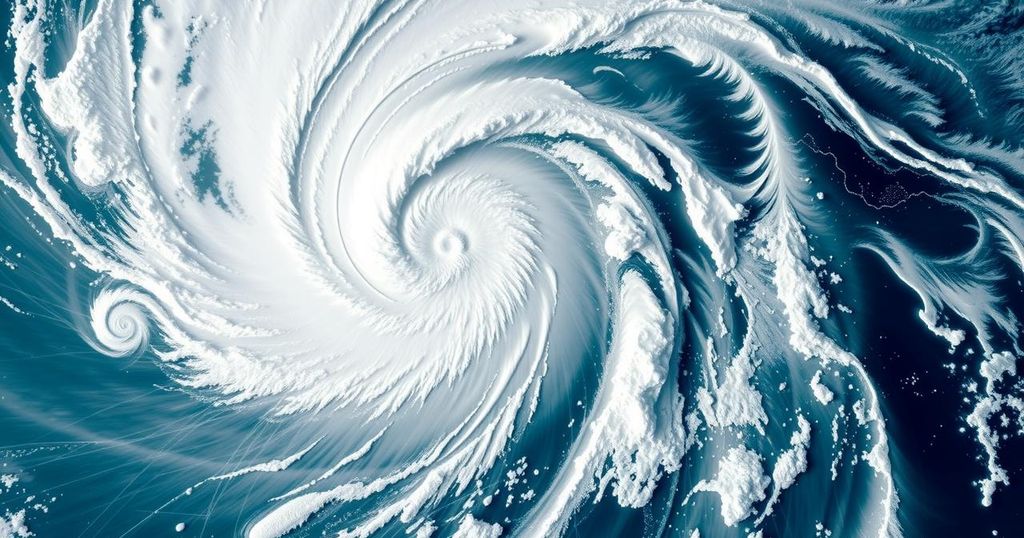A study by Imperial College London suggests that climate change intensified Cyclone Chido, making it 40% more likely to occur in today’s warmer climate. Chido, a category four storm, was the most damaging cyclone to hit Mayotte in 90 years, raising concerns about rising fatalities as assessments of the cyclone’s impact continue. The study demonstrated that global warming has increased wind speeds and cyclone intensity significantly since the pre-industrial era.
A preliminary study conducted by scientists at Imperial College London has indicated that climate change significantly intensified Cyclone Chido as it approached the Indian Ocean archipelago of Mayotte. Their assessment suggests that cyclones of Chido’s strength are 40 percent more likely to occur in the current climate of 2024 when compared to pre-industrial eras. As the most destructive cyclone to impact Mayotte in 90 years, Chido made landfall on Saturday, devastating the region, where a considerable portion of the population resides in precarious living conditions.
Chido was categorized as a category four storm, the second highest level on the five-point scale, and its severe impacts are still being evaluated. Officials express concerns that the death toll could rise into the thousands. The scientific evaluation undertaken by Imperial College London aimed to assess the influence of global warming on the increased intensity and wind speed of storms such as Chido.
To address the limitations of available empirical data, researchers employed an advanced computer model that simulated numerous tropical cyclones to deduce the effects of climate change. Their findings revealed a 3 miles-per-second increase in wind speeds within the vicinity of Chido’s landfall when comparing the current conditions to those existing before the industrial era.
The study concluded that climate change effectively elevated Cyclone Chido’s intensity from a Category 3 to a Category 4 cyclone. While France’s meteorological service refrained from directly linking Chido’s strength to climate change, they recognized that warmer oceans, influenced by human-induced climate change, have led to increased storm intensity. The full impact of Cyclone Chido was felt across Mayotte, which bore the storm’s force due to its trajectory over the island. The climate has experienced a rise of approximately 1.3 degrees Celsius since the pre-industrial era, contributing to the rise in extreme weather events.
The phenomenon of climate change has garnered significant attention in recent years as its effects on weather patterns become increasingly pronounced. Studies indicate that rising global temperatures, particularly due to human activity, are linked to the intensification of tropical storms and hurricanes. The role of warmer air and oceans in enhancing storm severity is a critical focus for scientists, who strive to establish connections between climate conditions and meteorological events. In this context, Cyclone Chido serves as a case study reflecting these broader trends, highlighting the urgent need for understanding and mitigating the impacts of climate change on weather patterns.
In conclusion, research indicates that climate change has played a pivotal role in the intensity of Cyclone Chido, making such events significantly more probable in contemporary times when compared to pre-industrial ages. This connection between global warming and tropical storms emphasizes the importance of ongoing studies in addressing severe weather phenomena. The findings underscore the critical nature of tackling climate change to mitigate its devastating effects on vulnerable regions such as Mayotte. The implications drawn from this cyclone broaden the discourse on global warming, reinforcing awareness of its dire consequences.
Original Source: www.france24.com






